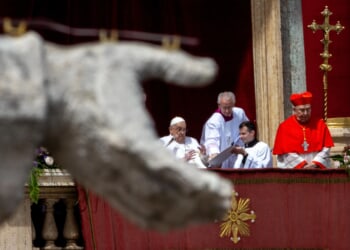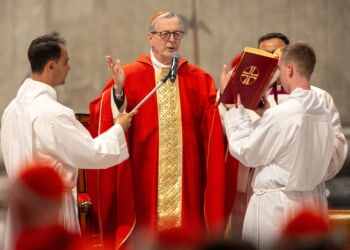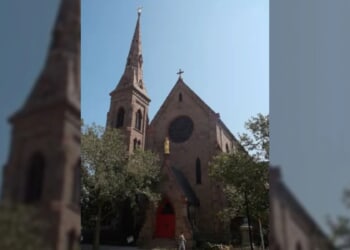On April 14, 2025, Texas Attorney General Ken Paxton expanded an investigation into EPIC City, asking officials in Plano, Richardson, Wylie, and Josephine to disclose communications related to the project. This came after remarks from Yasir Qadhi, a prominent scholar connected with EPIC, implied there was undisclosed municipal support. Paxton emphasized transparency, underscoring the state’s concern.
The common factor wasn’t Islam itself, but rather civic hesitance and failure to clearly define and assert jurisdictional authority.
Two weeks earlier, Governor Greg Abbott paused construction of EPIC City — a planned 402-acre community backed by the East Plano Islamic Center. Abbott made clear his concerns were not religious but related to zoning and civic authority, ensuring “every square foot of Texas remains governed by one law — not many.” Despite this clarification, Abbott faced immediate criticism, with opponents accusing him of discrimination and constitutional overreach.
However, Abbott’s critics overlook a subtle yet crucial issue. EPIC City was marketed as an inclusive, faith-inspired development. Yet its detailed plans explicitly prioritized community governance based on Islamic values. While there’s nothing inherently problematic about religiously inspired communities — such communities exist peacefully across the U.S. — the project’s particular approach raised legitimate concerns about jurisdictional clarity.
At the heart of this issue lies the Islamic jurisprudential concept known as Dar al-Islam, literally meaning “the domain of Islam.” Classically understood, this doctrine suggests that territories governed under Sharia law become permanently considered Islamic land. Although traditionally a theological principle, this concept has occasionally been misused by extremist ideologies to justify territorial claims in modern contexts, from parts of Europe to the Middle East.
Framed within this broader context, Abbott’s caution appears more understandable. While there’s no definitive indication that EPIC City’s leaders intended to misuse this concept, Texas authorities were mindful of similar instances elsewhere, notably in Europe, where communities originally intended to celebrate cultural diversity quietly evolved into areas of jurisdictional ambiguity.
Belgium’s Molenbeek is perhaps the best-known example. Initially praised for multicultural coexistence, civic authority gradually receded, allowing informal religious tribunals and unregistered religious institutions to operate unchecked. Eventually, this ambiguity contributed to tensions exploited by extremist elements — an outcome no community desires.
Similar jurisdictional complexities emerged in several European cities, notably parts of Malmö, Sweden, and certain boroughs in the United Kingdom. The common factor wasn’t Islam itself, but rather civic hesitance and failure to clearly define and assert jurisdictional authority.
The UK, in particular, faces ongoing challenges with informal Sharia councils that adjudicate family matters. These councils are not problematic because they’re Islamic; rather, concerns arise due to their informal, parallel nature, which sometimes weakens women’s rights and creates confusion between civic and religious authority.
In raising concerns about EPIC City, Texas officials did not aim to demonize Islam or Muslim communities. Indeed, religious freedom and diversity remain foundational American values, particularly in Texas, known for welcoming diverse faiths and communities. Instead, the concerns revolved around preserving civic coherence and avoiding jurisdictional ambiguity that can inadvertently foster division or exclusion — issues observed in certain European jurisdictions.
Abbott’s decision, then, is less about opposing a faith or its followers and more about protecting civic unity. Religious communities of all faiths enrich the fabric of American society, but clarity in civic governance and jurisdiction remains essential. The goal must always be communities that integrate harmoniously into democratic civic structures without inadvertently fostering separatism.
Texas, observing Europe’s mixed record, wisely chose vigilance. While the notion of Dar al-Islam can be respectfully acknowledged as part of Islamic tradition, it’s critical to recognize and guard against any misapplication that might lead to territorial misunderstandings. Abbott’s decision was prudent caution, not discrimination.
EPIC City itself is not inherently problematic because it’s Muslim-led. Rather, the issue lies with any community — religious or otherwise — that might, intentionally or not, blur civic boundaries. Democratic societies thrive on clarity and mutual respect, not on ambiguity or separatism.
Abbott’s approach exemplifies necessary vigilance to protect civic sovereignty and community cohesion, ensuring Texas remains a place where diverse communities flourish, united clearly and fairly under one law.
READ MORE from Kevin Cohen:
The Appalling Tunnels Beneath Our Universities
Western Nations Are Ceding Sovereignty to Sharia Councils


![Frontier Airline Agents Fired After Video Mocking Passenger on Camera Goes Viral [WATCH]](https://www.right2024.com/wp-content/uploads/2025/05/Frontier-Airline-Agents-Fired-After-Video-Mocking-Passenger-on-Camera-350x250.jpg)



![Eric Swalwell's Defense of Deported MS-13 Member Get Shut Down by Kristi Noem [WATCH]](https://www.right2024.com/wp-content/uploads/2025/05/Eric-Swalwells-Defense-of-Deported-MS-13-Member-Get-Shut-Down-350x250.jpg)
![NYT Covered for Illegal Alien Accused of Raping a Corpse on NYC Subway [WATCH]](https://www.right2024.com/wp-content/uploads/2025/05/NYT-Covered-for-Illegal-Alien-Accused-of-Raping-a-Corpse-350x250.jpg)

![James Comer Hints at the Epic Behind-the-Scenes Effort Targeting the Deep State [WATCH]](https://www.right2024.com/wp-content/uploads/2025/04/James-Comer-Hints-at-the-Epic-Behind-the-Scenes-Effort-Targeting-the-350x250.jpg)
![Minnesota Officials Panicking Over Derek Chauvin Pardon Speculation, Potential Unrest [WATCH]](https://www.right2024.com/wp-content/uploads/2025/05/Minnesota-Officials-Panicking-Over-Derek-Chauvin-Pardon-Speculation-Potential-Unrest-350x250.jpg)





